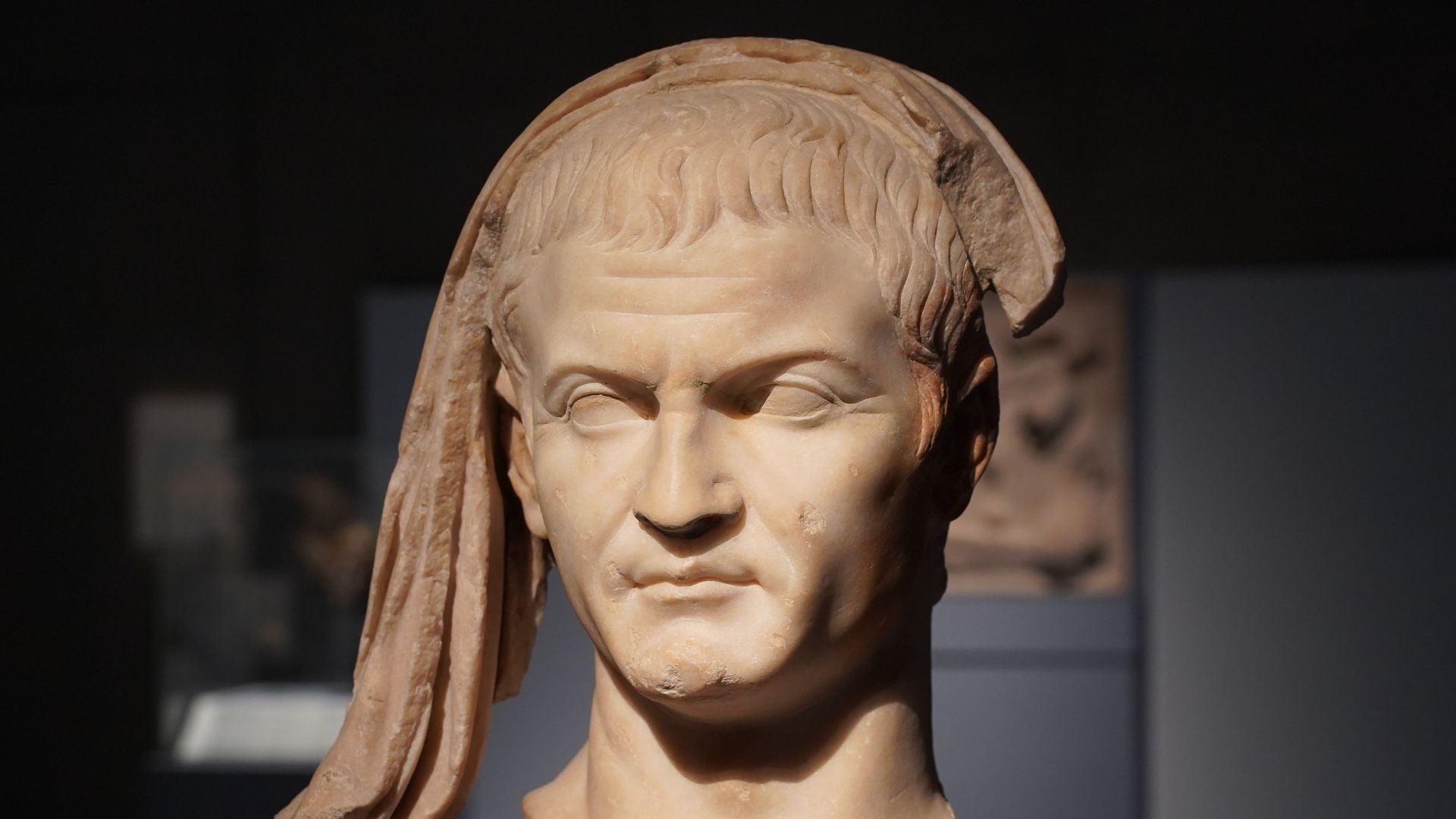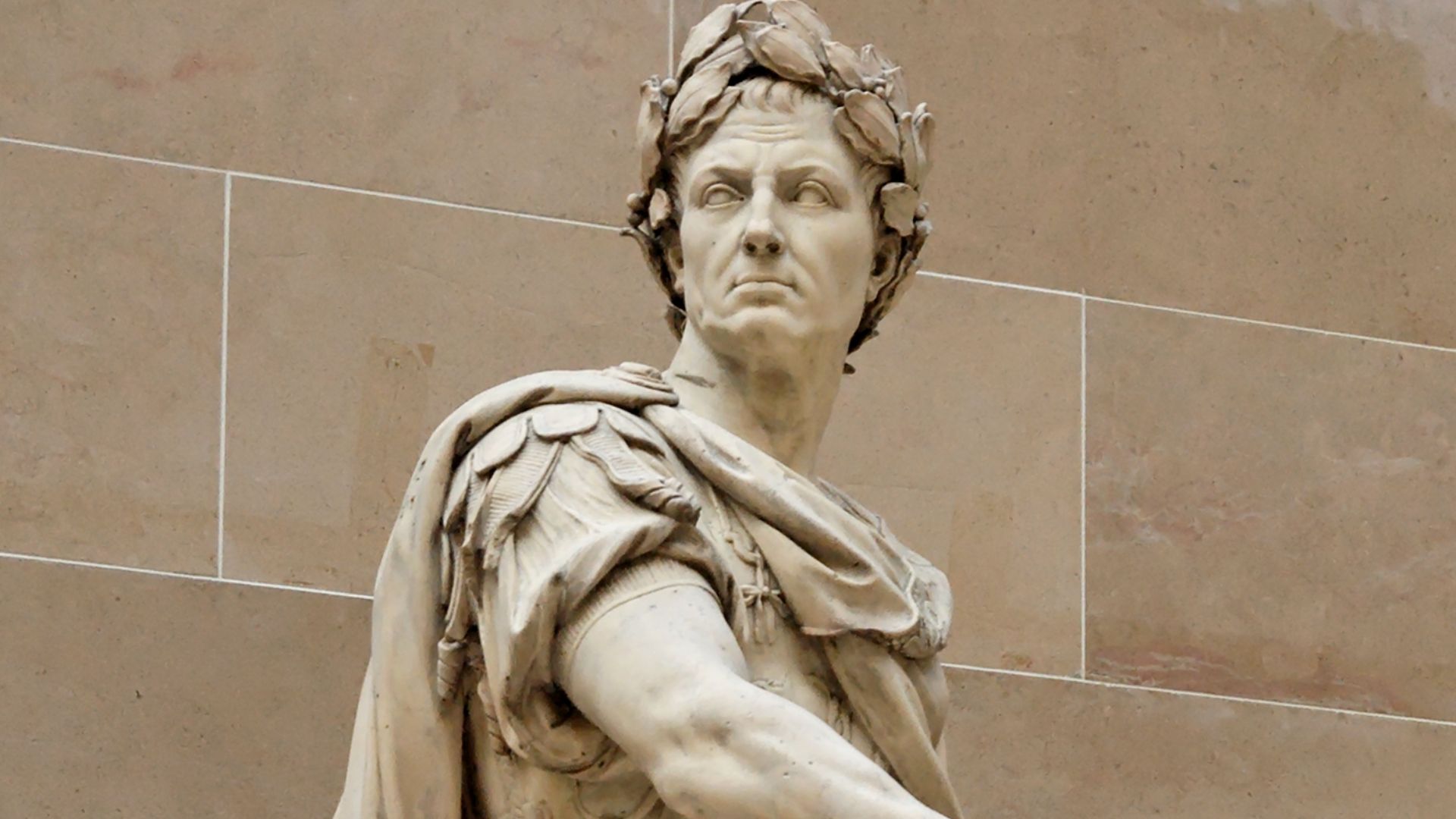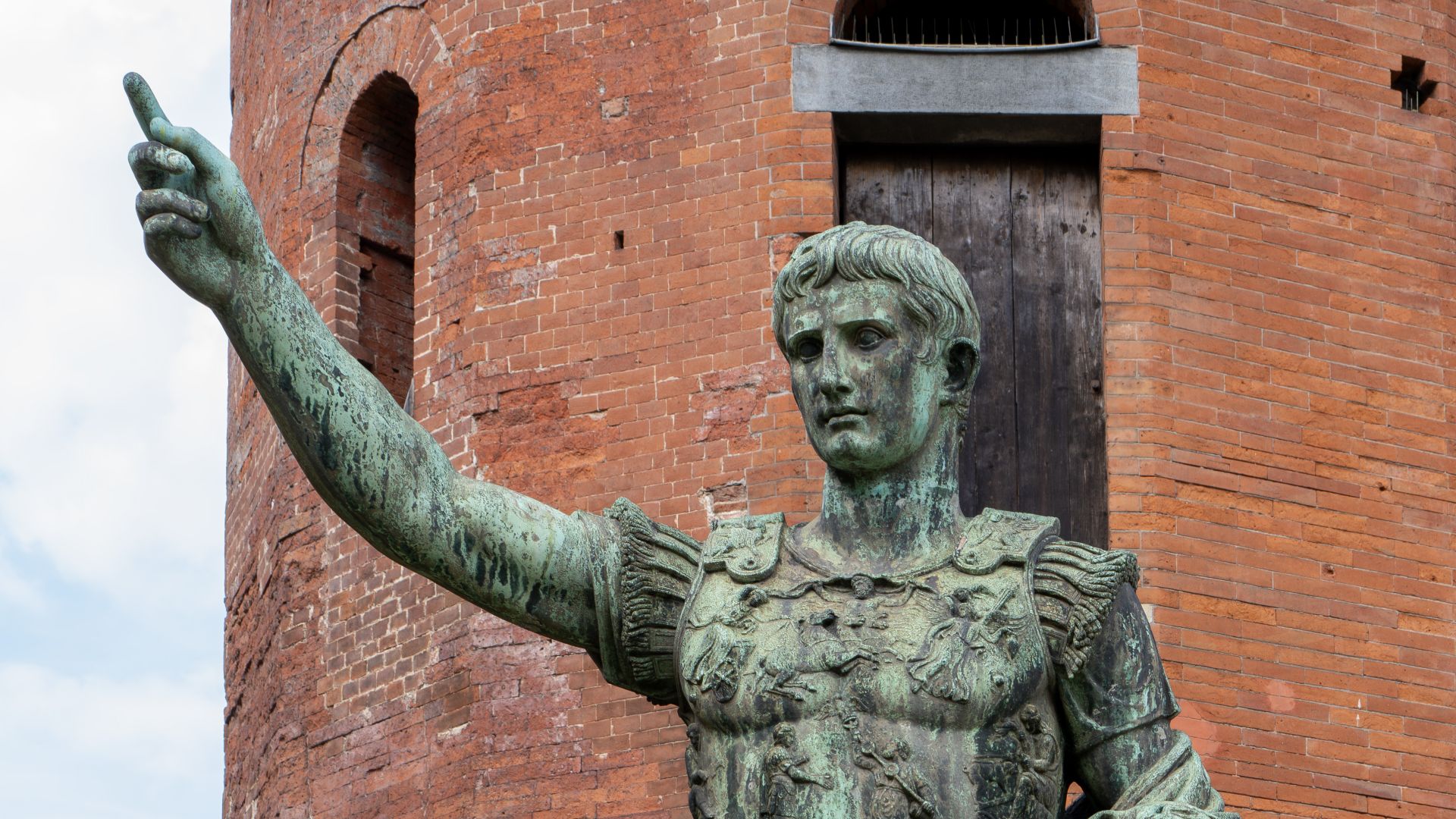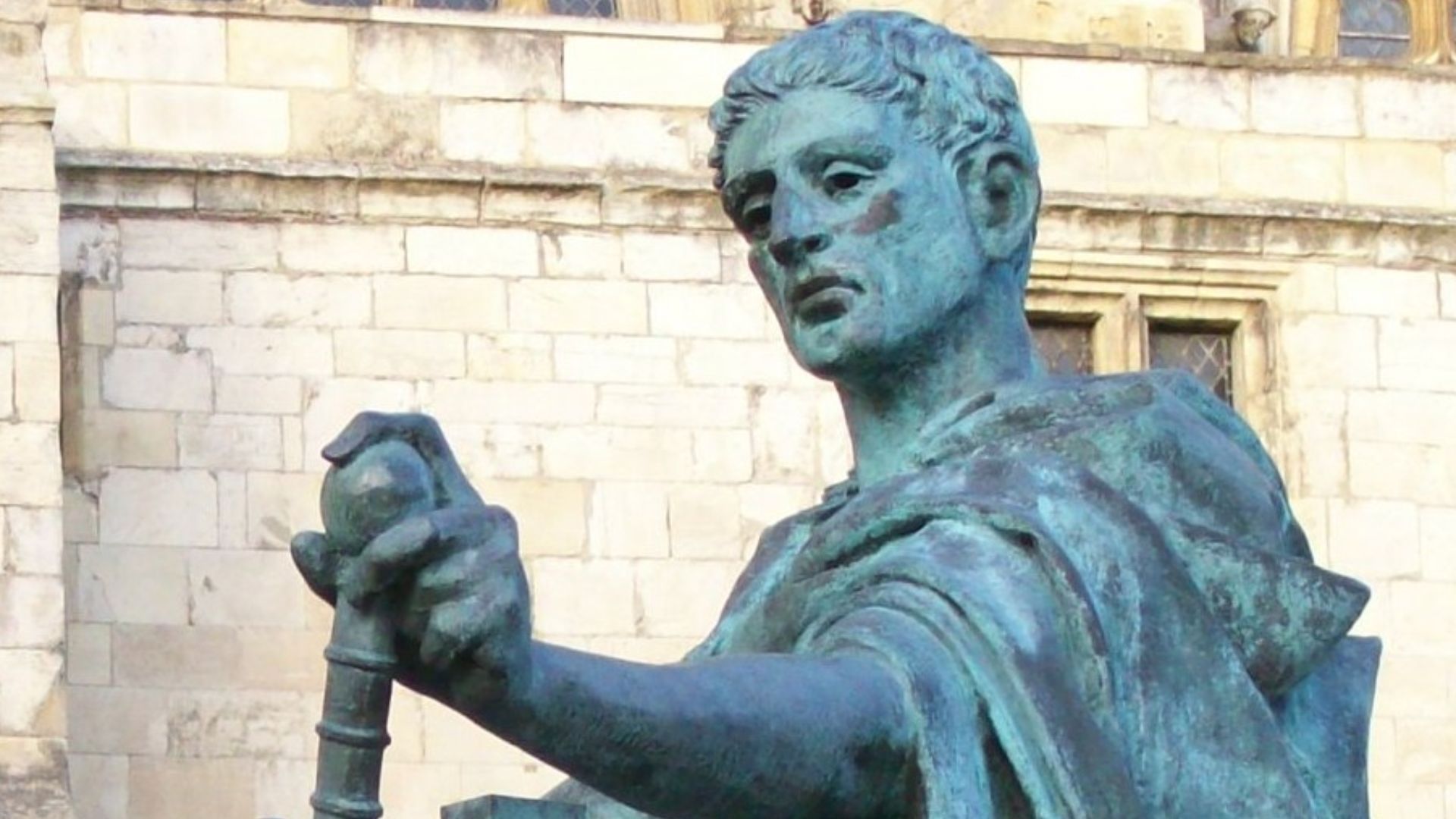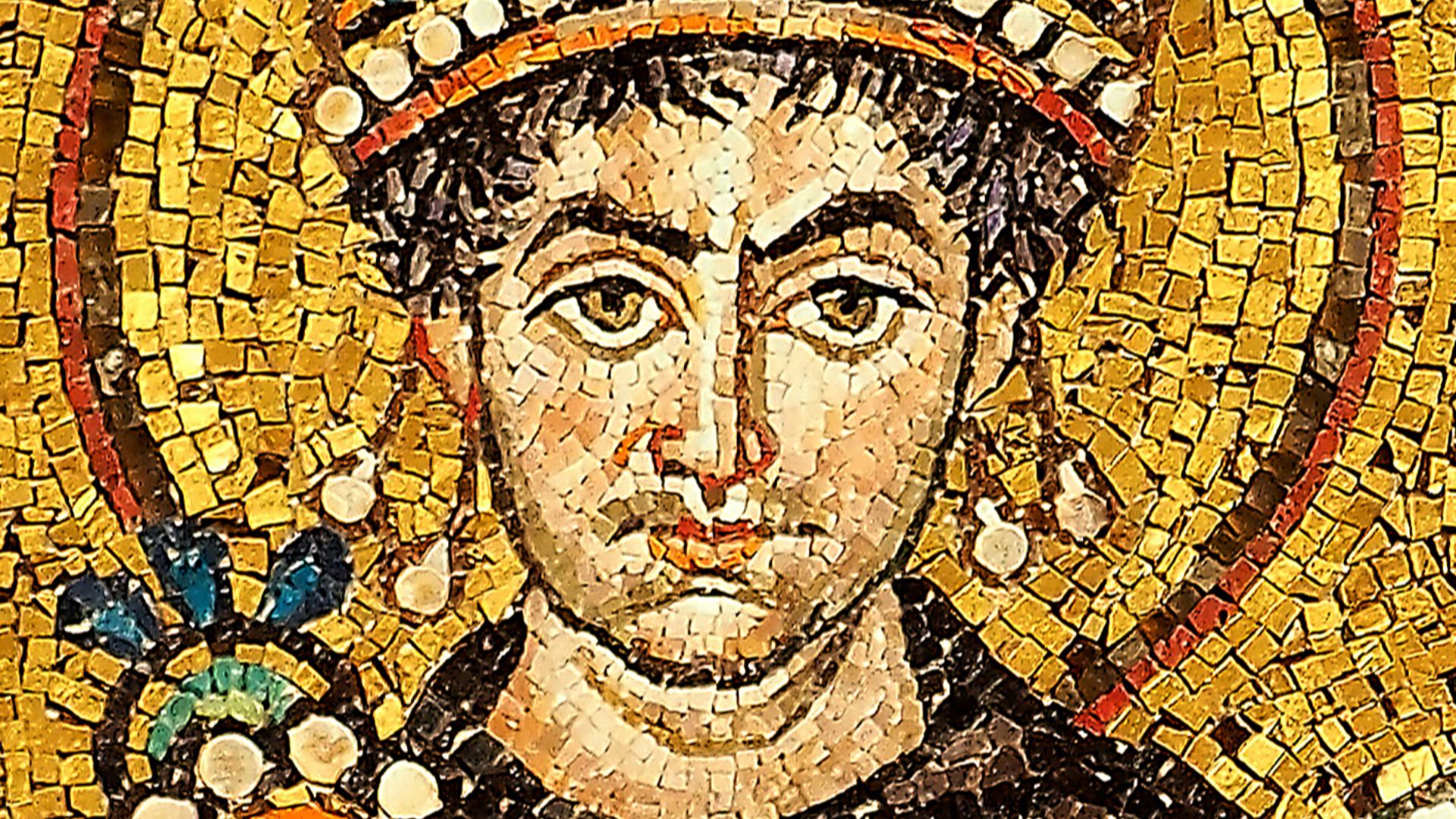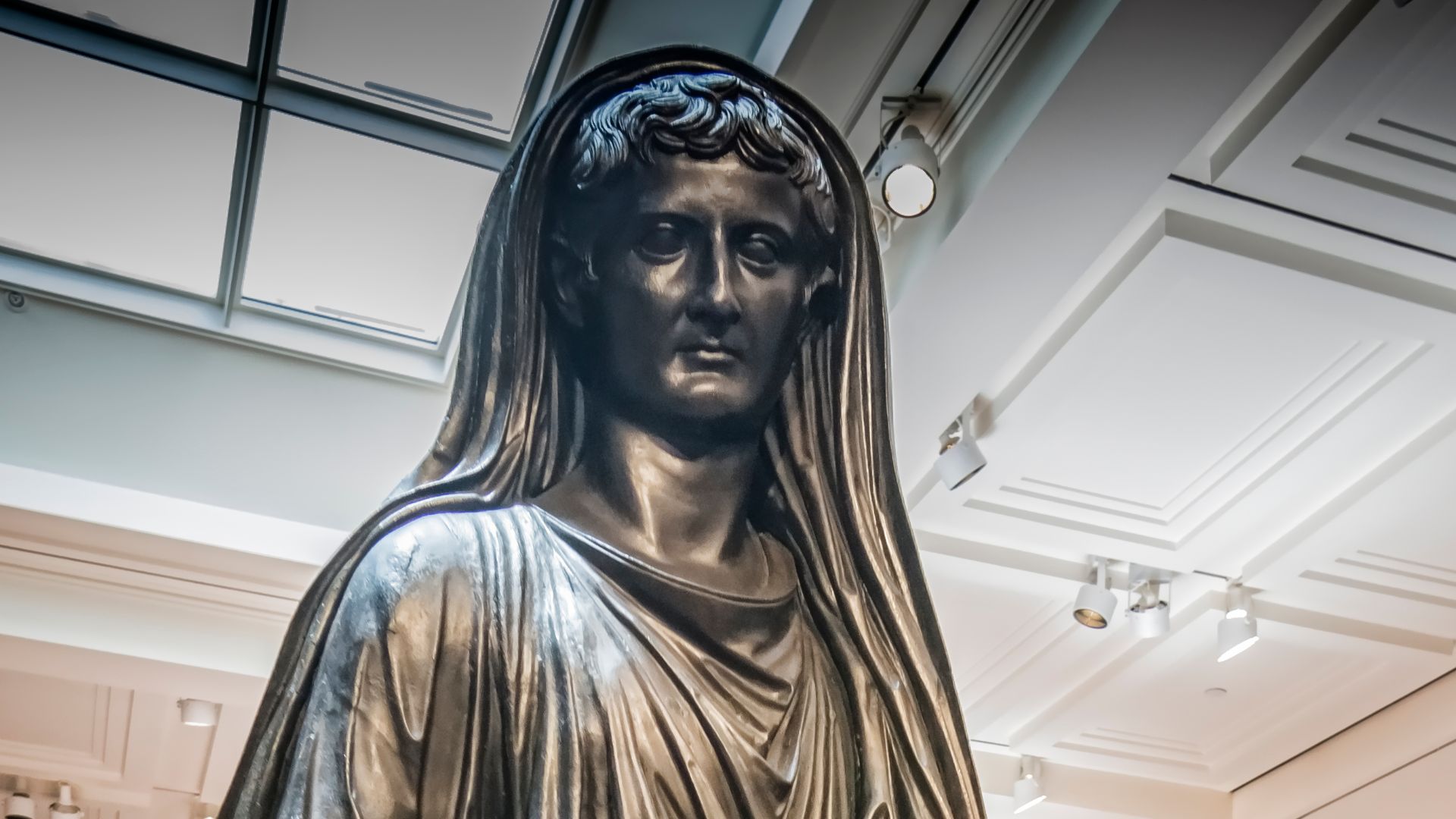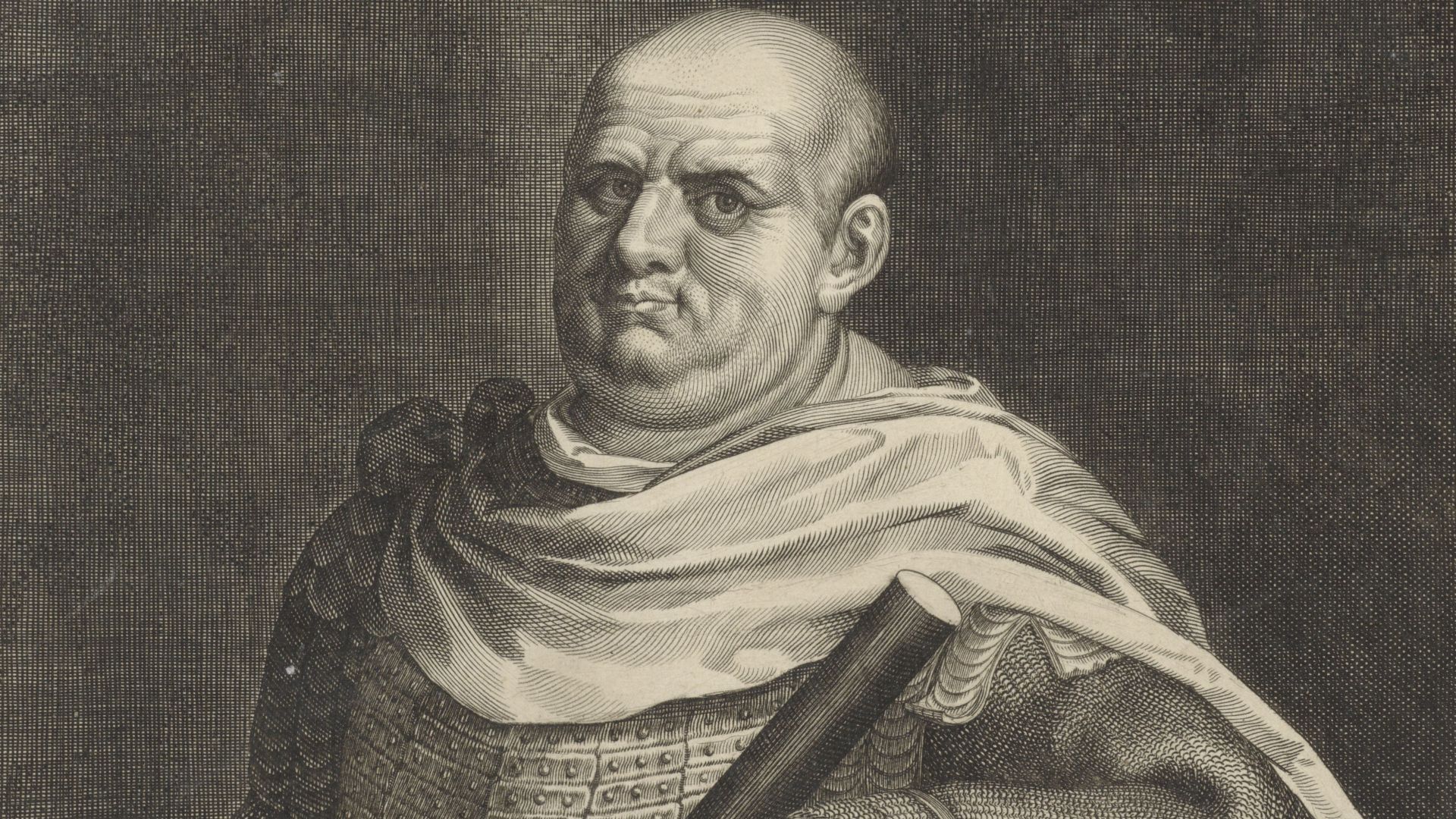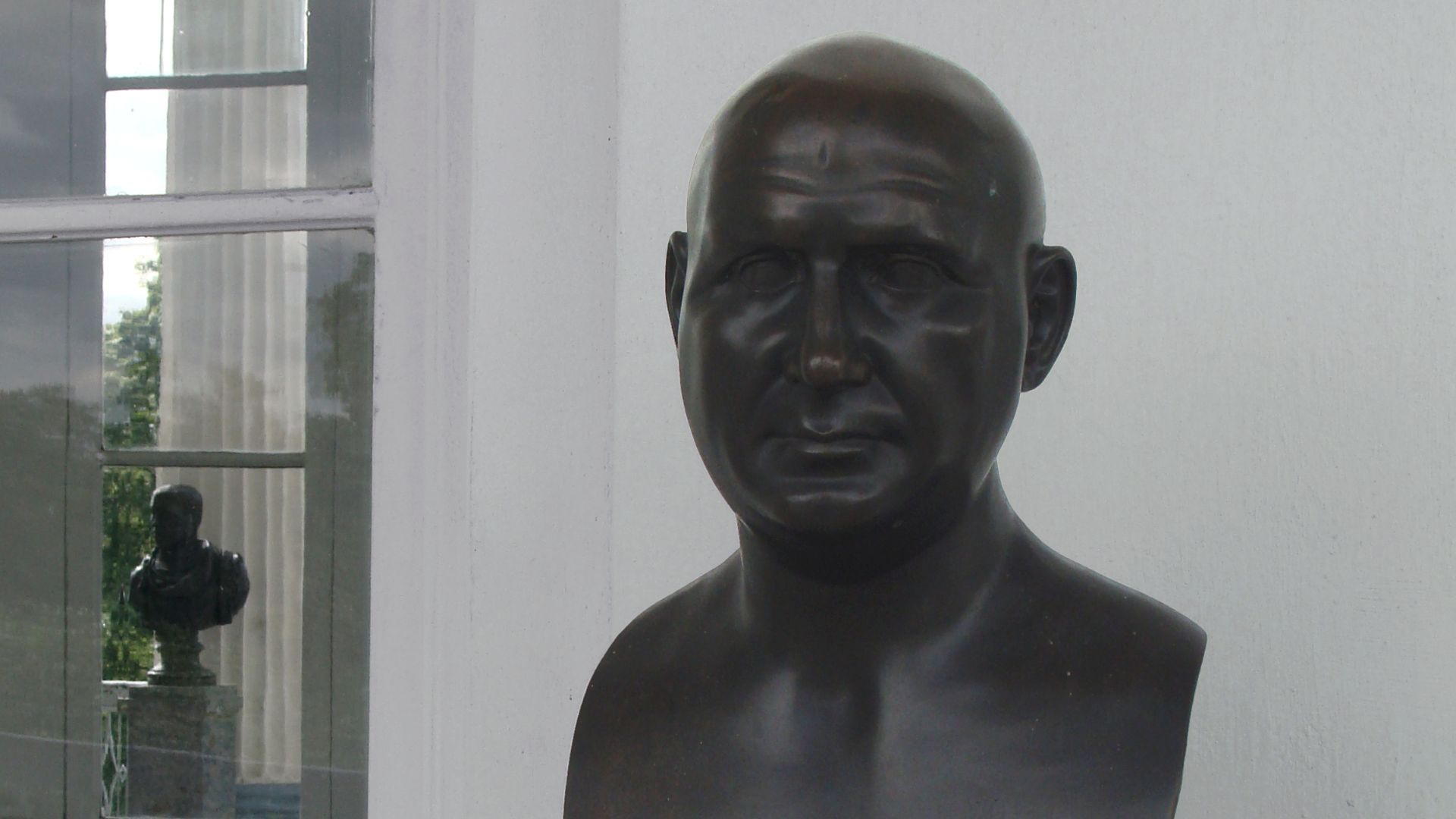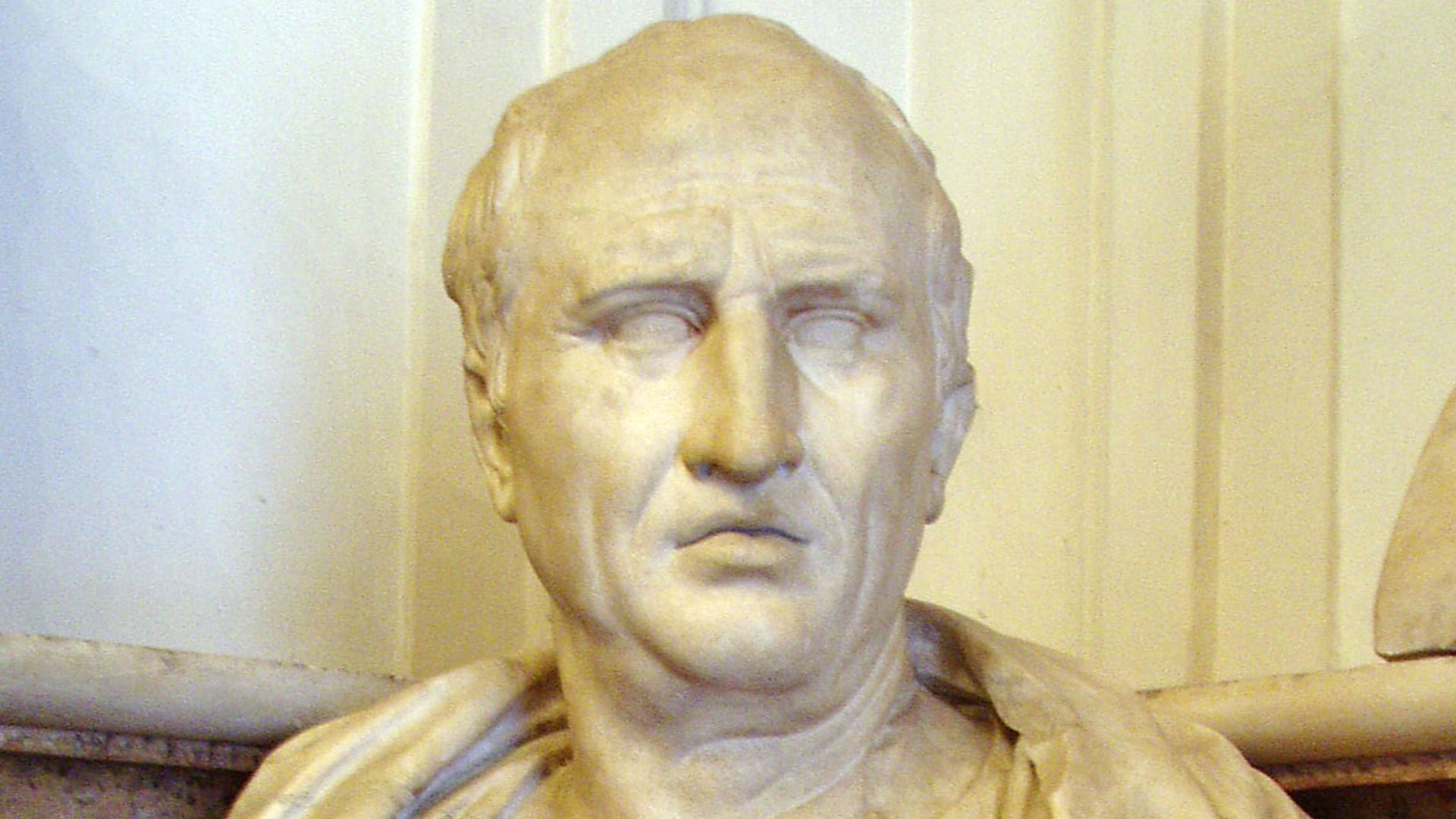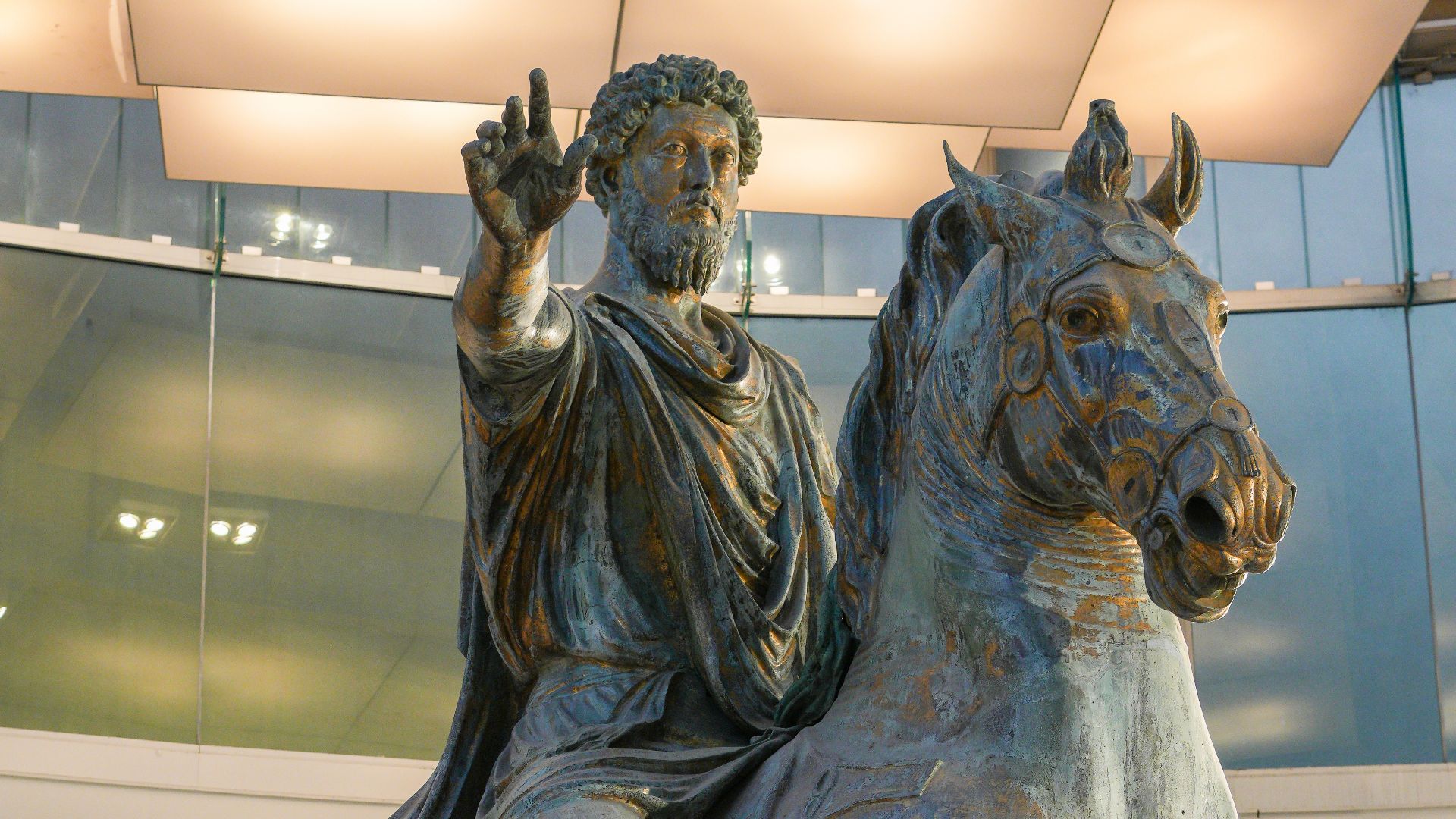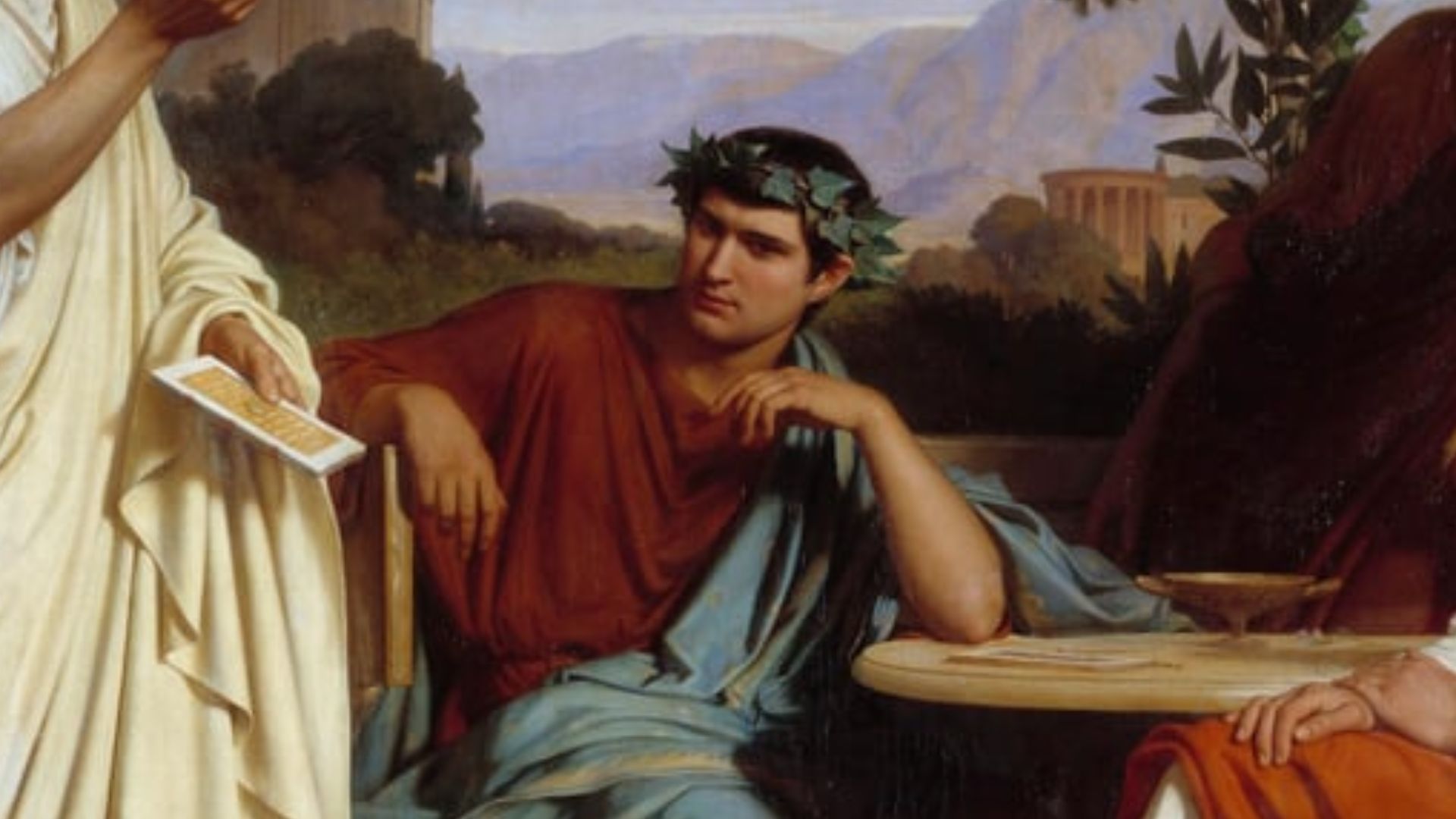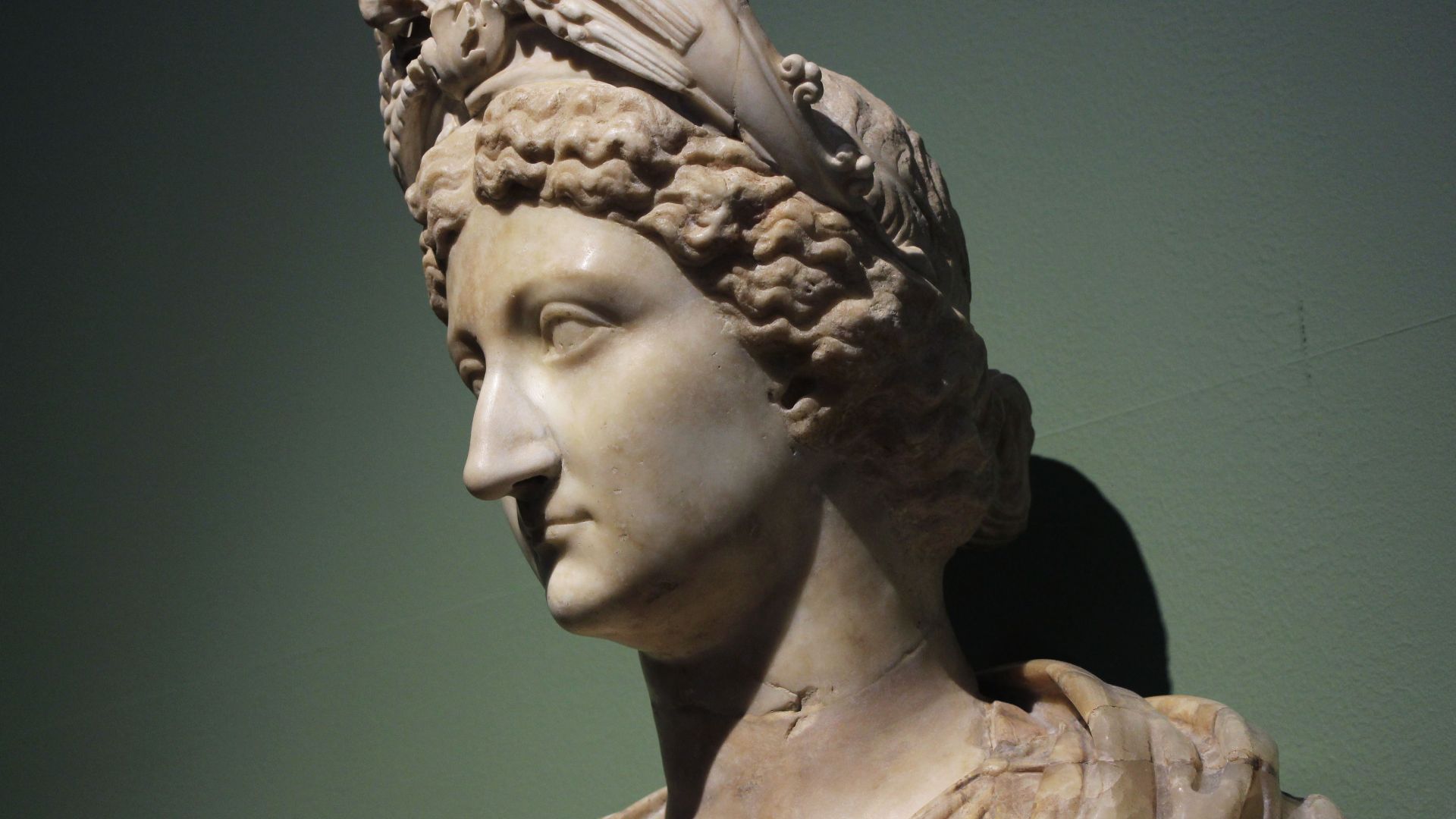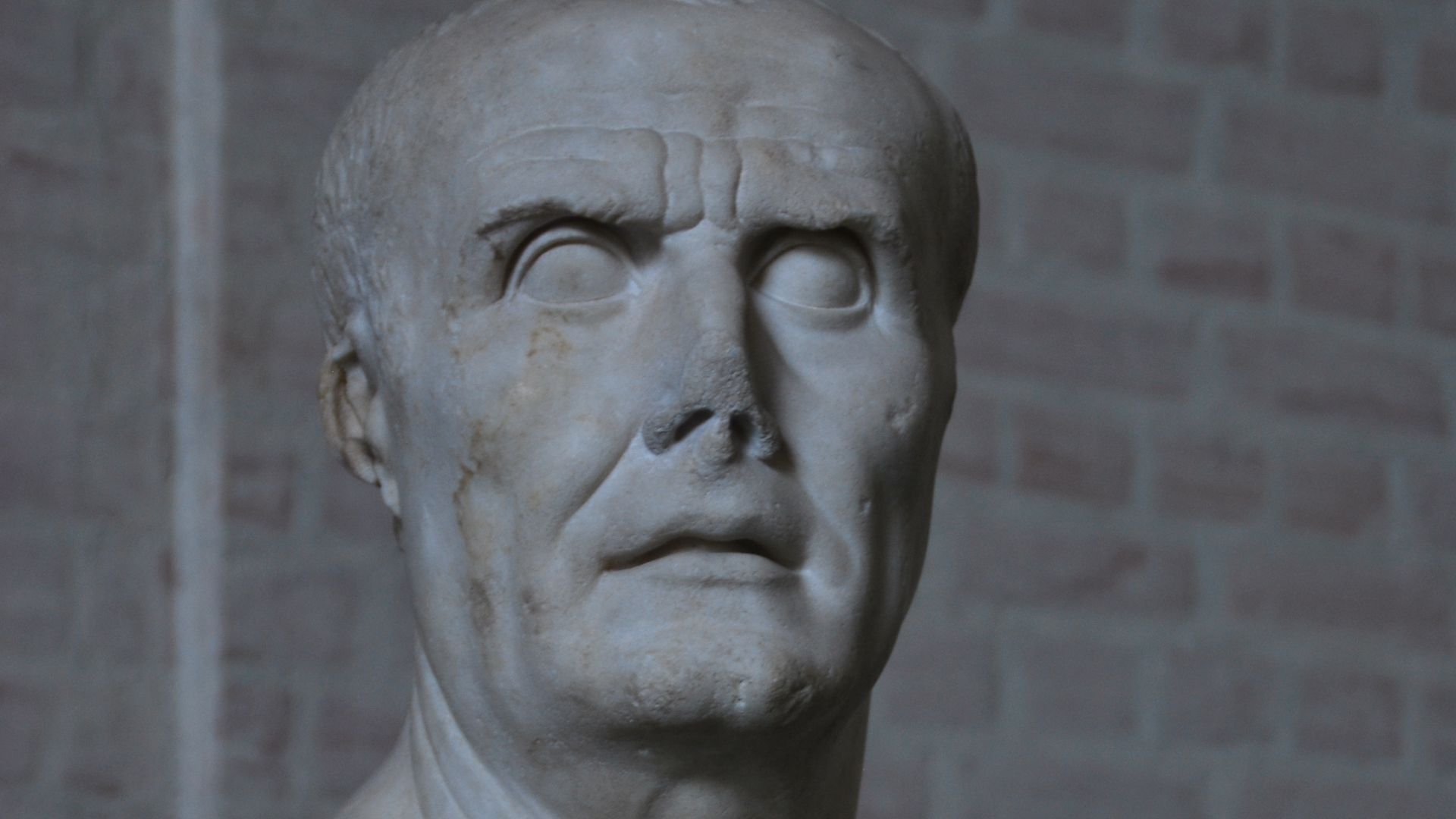The Titans Of Rome
The Roman Empire rose on bricks and marble and the vision of its most legendary figures. These generals and revolutionaries left marks so deep they echo through culture and world politics even today. Let’s get to know the 20 trailblazers who contributed to Rome’s undeniable place in human history.
1. Julius Caesar
Julius Caesar's military genius conquered Gaul and defeated Pompey, triggering Rome's transition from Republic to empire. His reforms included the Julian calendar, which became the foundation for the modern Gregorian system. Caesar's assassination in 44 BC made him a martyr for imperial rule, with his adopted heir, Augustus, completing his vision.
2. Augustus
Born Octavian, Augustus established the Principate, creating a stable imperial system that lasted centuries. He initiated the Pax Romana, a 200-year period of relative peace and prosperity. His building program transformed Rome into a marble-clad capital worthy of an empire.
3. Constantine The Great
Constantine's conversion to Christianity and the Edict of Milan (313 AD) ended centuries of persecution. He founded Constantinople, which became the Eastern Roman Empire's capital for over a millennium. His reign laid the foundation for Christianity's dominance in European civilization.
4. Diocletian
Diocletian stabilized the collapsing empire through his tetrarchy system of four co-emperors. His economic reforms, including price controls, temporarily restored financial order. Though remembered for persecuting Christians, his administrative restructuring prolonged Rome's survival by approximately 171 years.
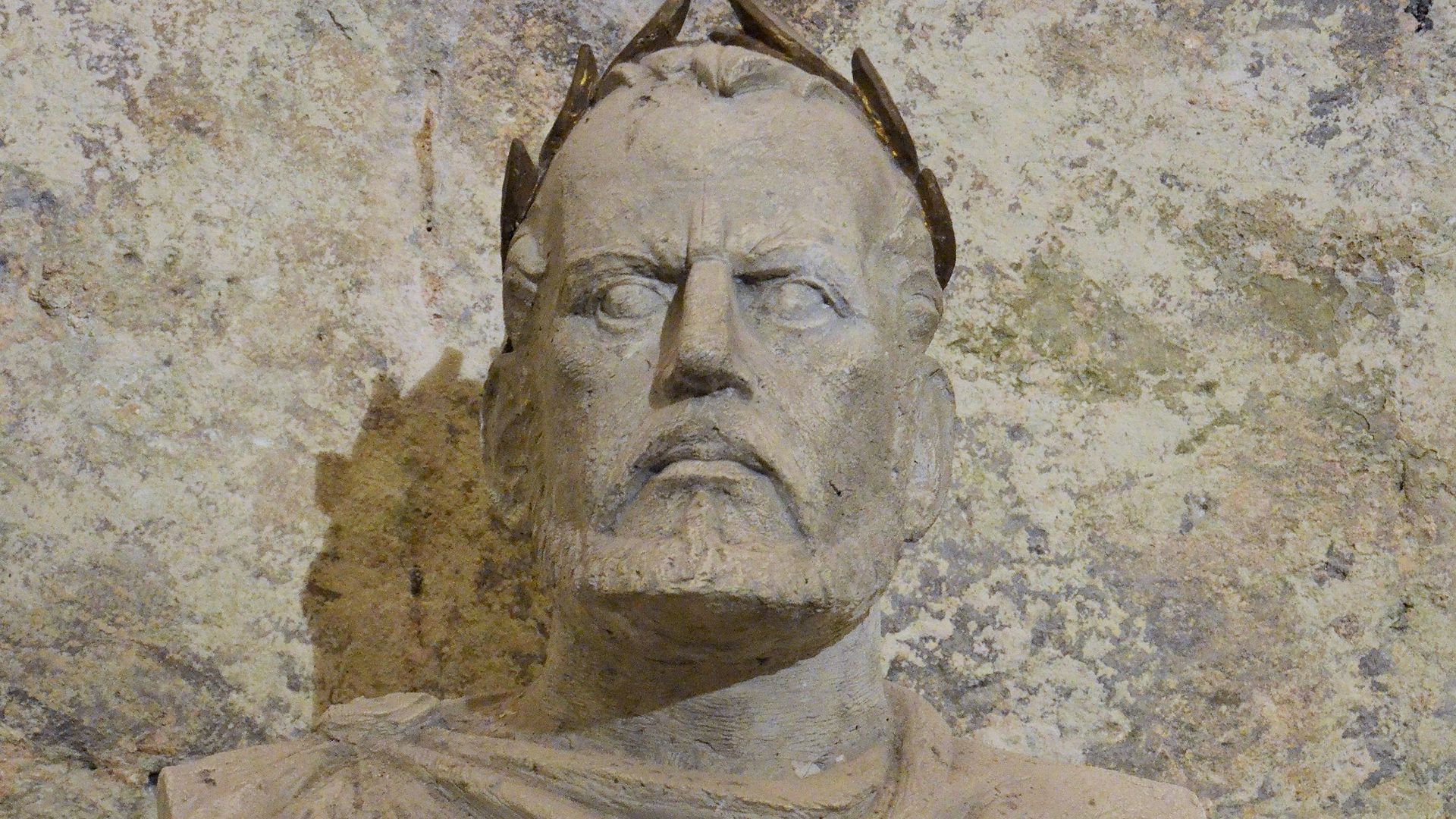 Carole Raddato from FRANKFURT, Germany on Wikimedia
Carole Raddato from FRANKFURT, Germany on Wikimedia
5. Justinian I
His legal code preserved Roman law for future generations, influencing modern legal systems worldwide. His general Belisarius reconquered North Africa and Italy from barbarian kingdoms. The Hagia Sophia, built during his reign, remains one of history's most magnificent architectural achievements.
6. Trajan
Under Trajan, Rome reached its maximum territorial extent, stretching from Britain to Mesopotamia. His conquest of Dacia brought vast gold reserves that funded massive public works. Trajan's Column still stands as a masterpiece of Roman narrative art.
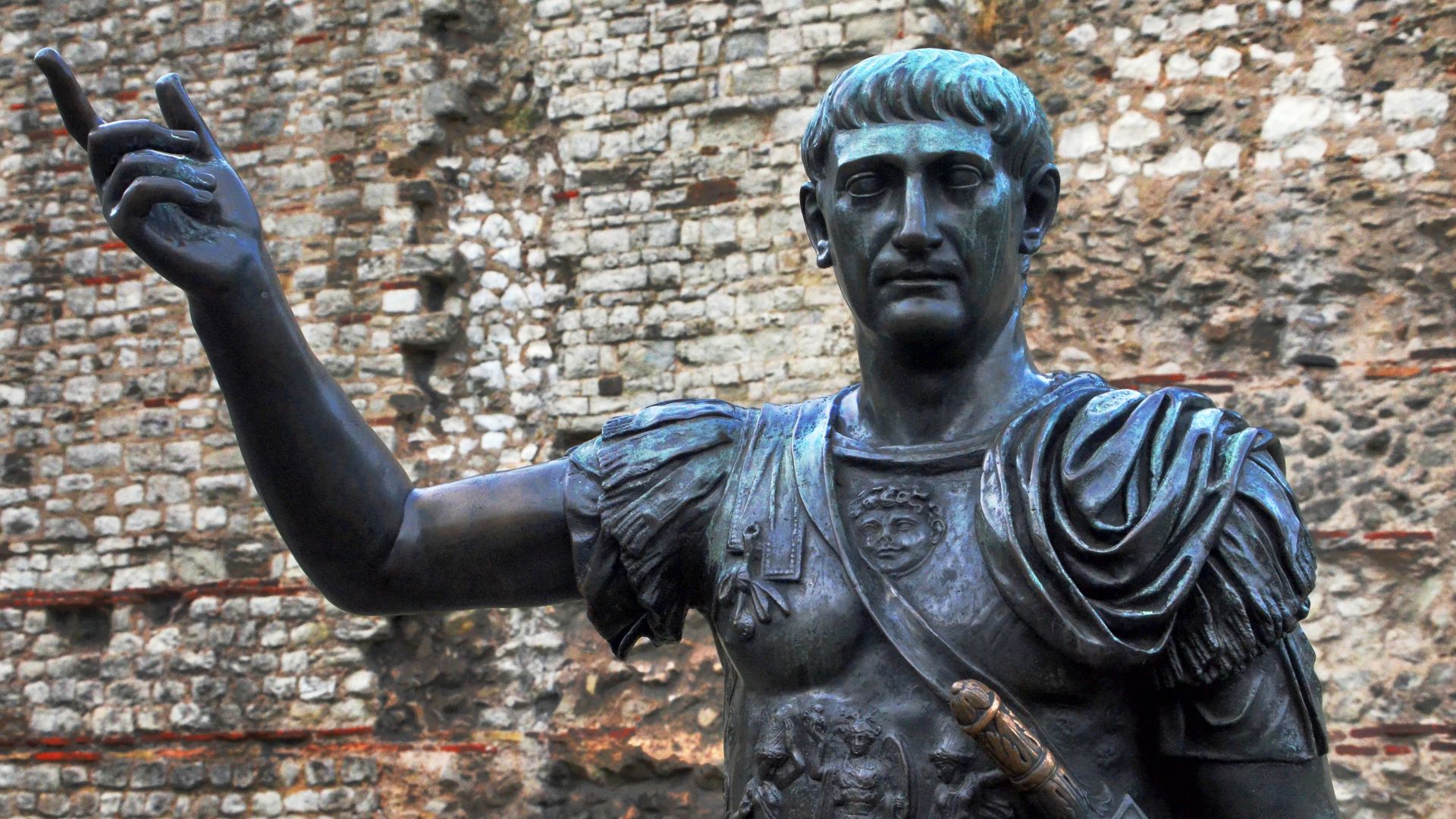 [Duncan] from Nottingham, UK on Wikimedia
[Duncan] from Nottingham, UK on Wikimedia
7. Hadrian
Hadrian abandoned Trajan's eastern conquests to consolidate the empire behind fortified borders like Hadrian's Wall. He rebuilt the Pantheon with its revolutionary concrete dome that still impresses architects today. The emperor's love of Greek culture influenced Rome's intellectual life.
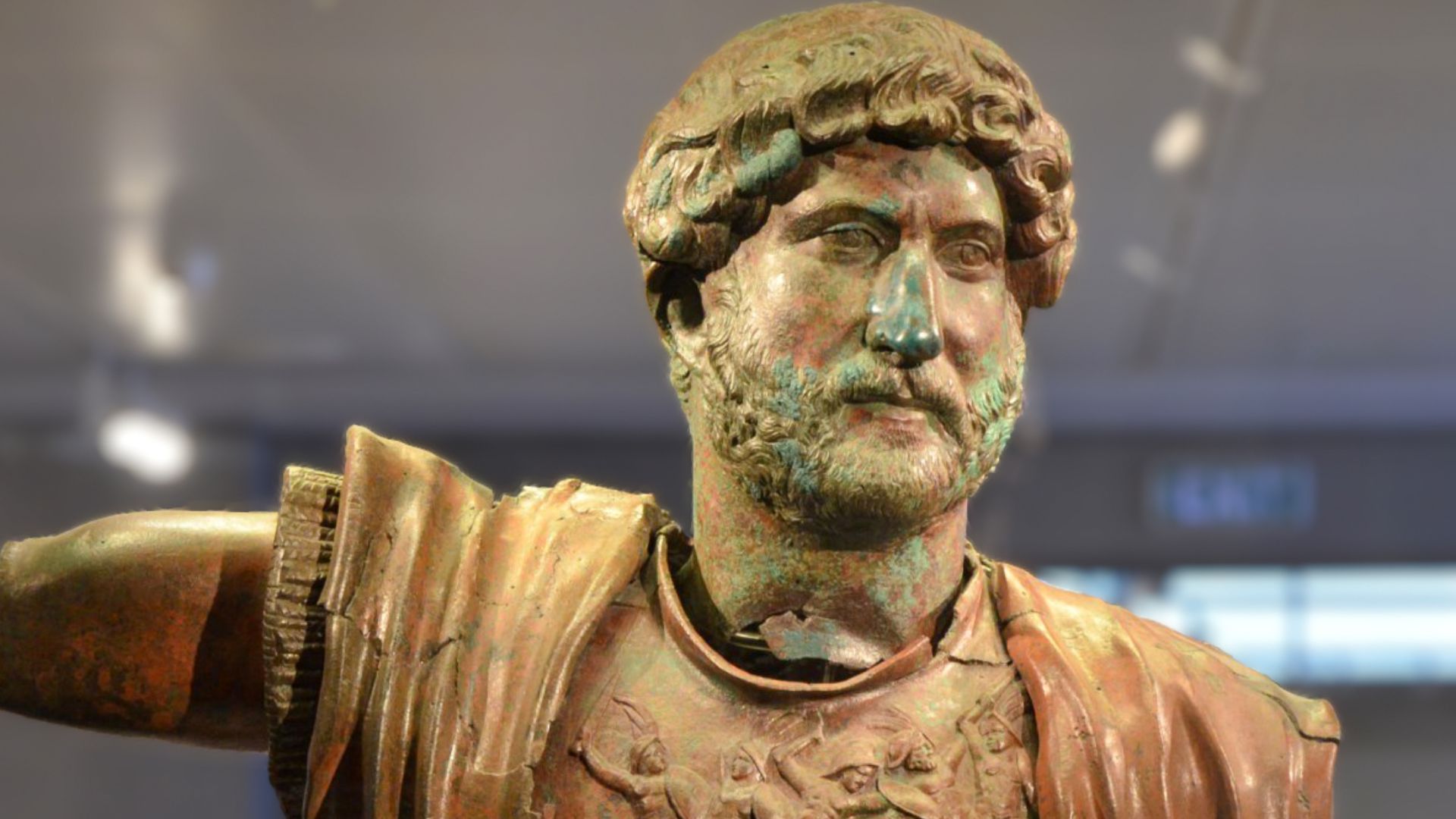 Carole Raddato from FRANKFURT, Germany on Wikimedia
Carole Raddato from FRANKFURT, Germany on Wikimedia
8. Tiberius
Tiberius skillfully upheld Augustus's imperial structure. He even oversaw military campaigns in Germany that failed to establish lasting influence. Though his later years were shadowed by paranoia and the rise of the formidable Sejanus, he ensured the empire remained financially robust and secure.
9. Vespasian
Vespasian brought an end to the turbulent Year of the Four Emperors, establishing the long-lasting Flavian dynasty. He famously began the construction of the Colosseum on the site of an artificial lake within Nero’s Domus Aurea complex. His pragmatic military background proved vital, as it restored much-needed stability after the chaos of Nero's rule.
10. Scipio Africanus
Scipio's decisive victory at Zama in 202 BC crushed Carthage's might and concluded the Second Punic War. He brilliantly adapted Hannibal's own strategies to achieve this triumph, showcasing remarkable Roman military adaptability. However, he chose to retire from public life rather than pursue political power. It was a rare civic virtue.
11. Pompey The Great
Pompey cleared the Mediterranean of pirates in just three months, demonstrating unmatched military efficiency. His eastern conquests brought vast territories under Roman control, which enriched the treasury. Though once the Senate’s leading force against Caesar, his defeat at Pharsalus marked a turning point in the Republic’s decline.
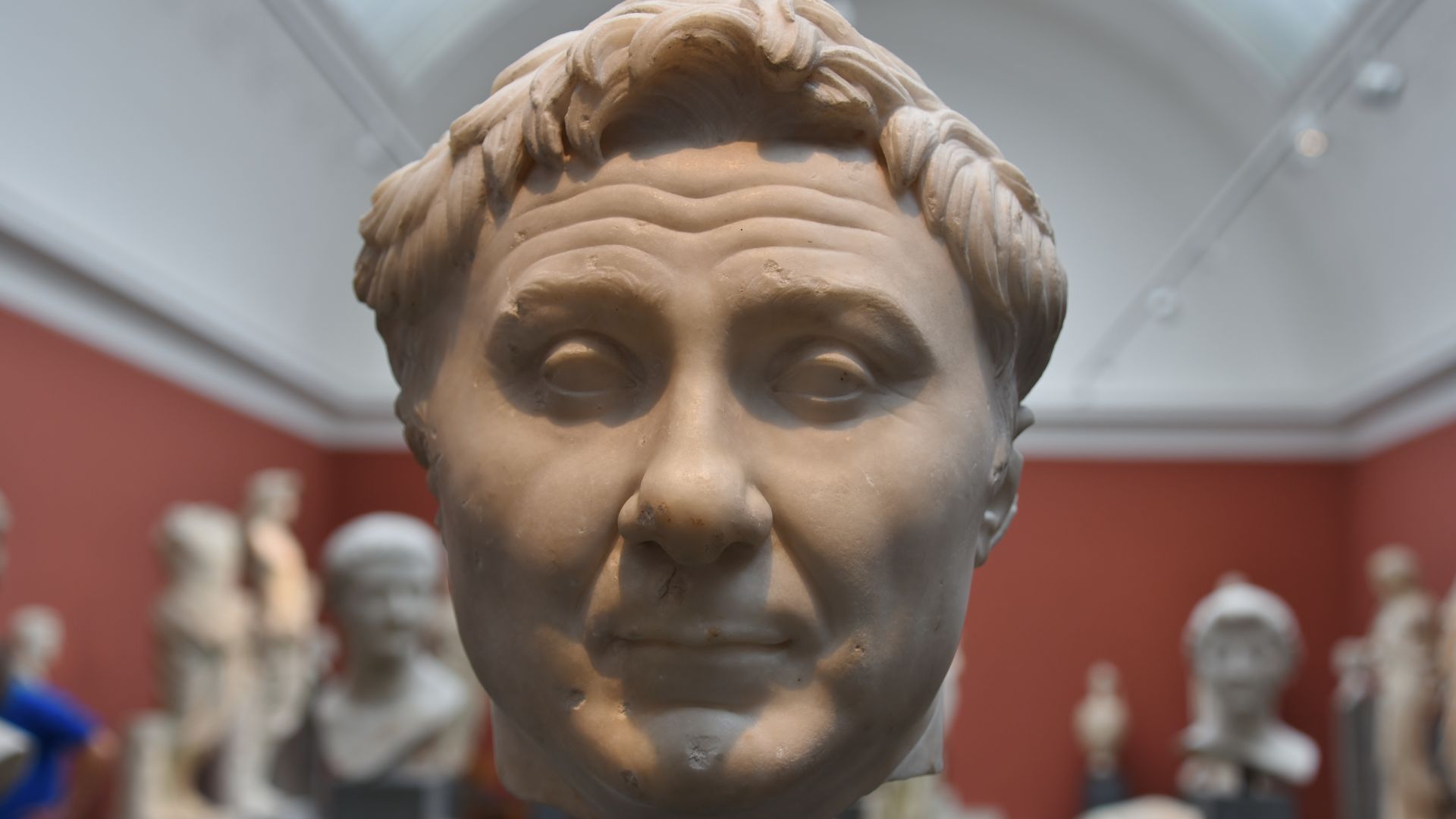 Richard Mortel from Riyadh, Saudi Arabia on Wikimedia
Richard Mortel from Riyadh, Saudi Arabia on Wikimedia
12. Sulla
Sulla's march on Rome broke sacred traditions, proving that military power trumped the political process. His proscription lists eliminated enemies while filling state coffers with confiscated wealth. As dictator, he strengthened the Senate's authority temporarily. The constitutional precedents he set would later enable Caesar's rise to absolute power.
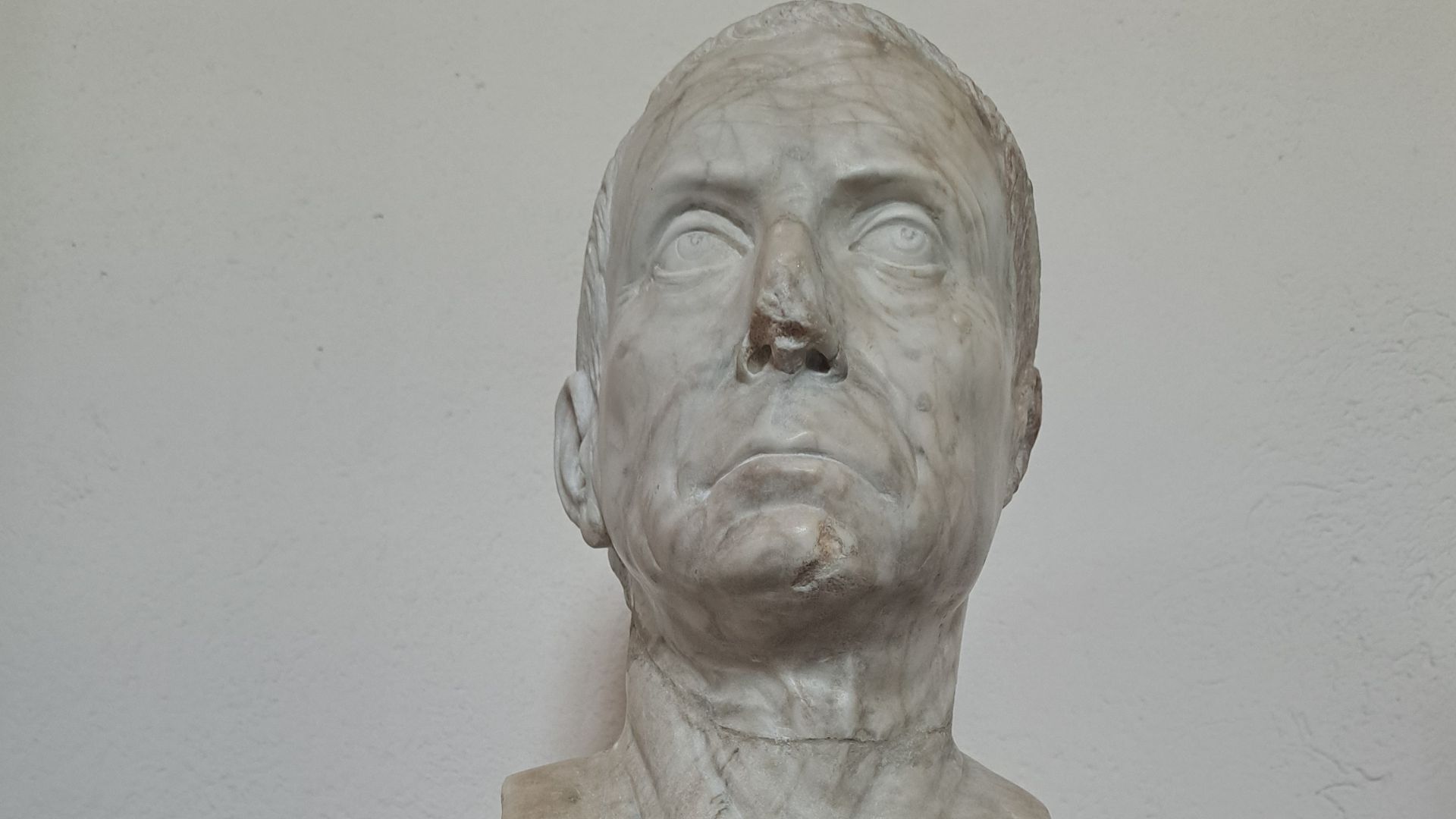 https://www.flickr.com/photos/mumblerjamie/ on Wikimedia
https://www.flickr.com/photos/mumblerjamie/ on Wikimedia
13. Cicero
Rome's greatest orator saved the Republic by exposing Catiline's conspiracy through fiery speeches. His philosophical works bridged Greek thought and Roman values, influencing Western philosophy. Cicero's brutal murder during the proscriptions made him a martyr for republican ideals. Today, his letters provide a window into late Republican politics.
14. Marcus Agrippa
Agrippa's naval victory at Actium secured Octavian's rise as Augustus. He transformed Rome with practical projects like aqueducts, roads, and the first Pantheon. Unlike other ambitious generals, he remained loyal to Augustus until his death. Interestingly, Agrippa's bloodline would eventually produce emperors Caligula and Nero.
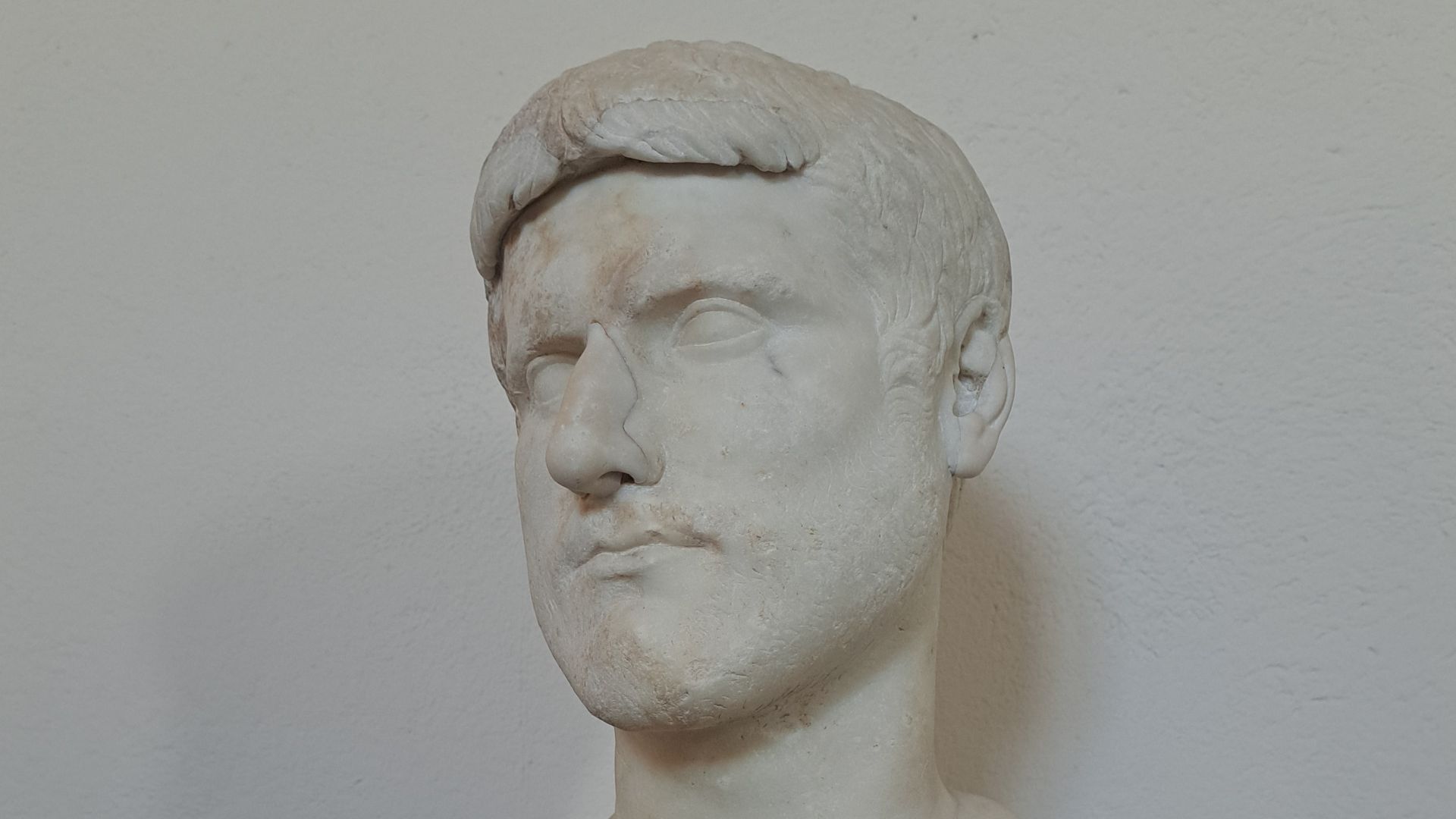 https://www.flickr.com/photos/mumblerjamie/ on Wikimedia
https://www.flickr.com/photos/mumblerjamie/ on Wikimedia
15. Marcus Aurelius
His Meditations remain a timeless manual to Stoic philosophy, written during military campaigns. Aurelius spent most of his reign defending the Danube frontier against Germanic tribes. The last of the Five Good Emperors, his demise ended Rome's golden age of stability. His son Commodus' disastrous rule followed the philosophical emperor.
16. Virgil
Commissioned by Augustus, the Aeneid crafted Rome's divine origin story from Trojan refugees. Virgil's masterpiece justified imperial rule as the fulfillment of destiny. The poet died before completing the final revisions and wanted the manuscript burned. Augustus countermanded this wish, preserving Western literature's most influential epic.
17. Livia Drusilla
Livia, married to Augustus for 52 years, became the model for all future imperial women. She skillfully secured the succession for her son Tiberius through calculated political maneuvering. Though later deified, her legacy was clouded by ancient rumors of poisoning. Today, she’s recognized as Rome’s first true empress in function.
18. Aurelian
This soldier-emperor reunited the fractured empire during the Crisis of the Third Century, earning his title "Restitutor Orbis." Aurelian defeated the breakaway Palmyrene and Gallic empires, temporarily saving Rome from collapse. He also built Rome's massive Aurelian Walls, which still stand today, even though partially. His assassination cut short what might have been a transformative reign.
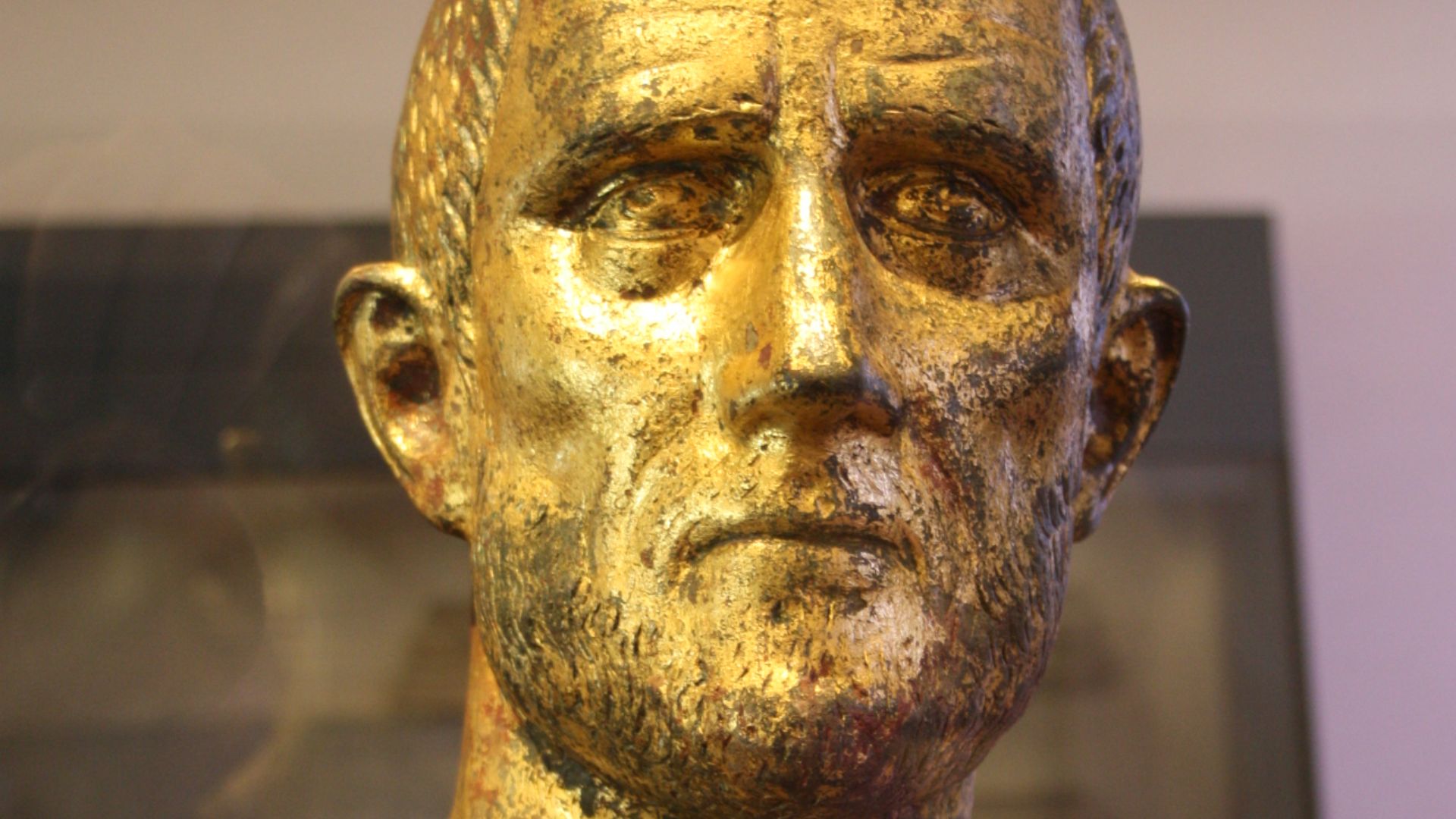 Giovanni Dall'Orto. on Wikimedia
Giovanni Dall'Orto. on Wikimedia
19. Fulvia
The first Roman woman to appear on coins, she spectacularly broke gender norms. Fulvia commanded troops during the Perusine War against Octavian. Her marriages to Clodius, Curio, and Mark Antony made her a key political player. Ancient historians criticized her ambition, but she wielded unprecedented power for a woman.
 Francesco Maria Bassi on Wikimedia
Francesco Maria Bassi on Wikimedia
20. Gaius Marius
Marius transformed Rome's military by opening enlistment to landless citizens, creating a professional standing army. His reforms ended the militia system that had served Rome for centuries. Victorious against invading Germanic tribes, he held an unprecedented seven consulships. These changes paved the way for later warlords like Caesar to challenge the Republic.
KEEP ON READING
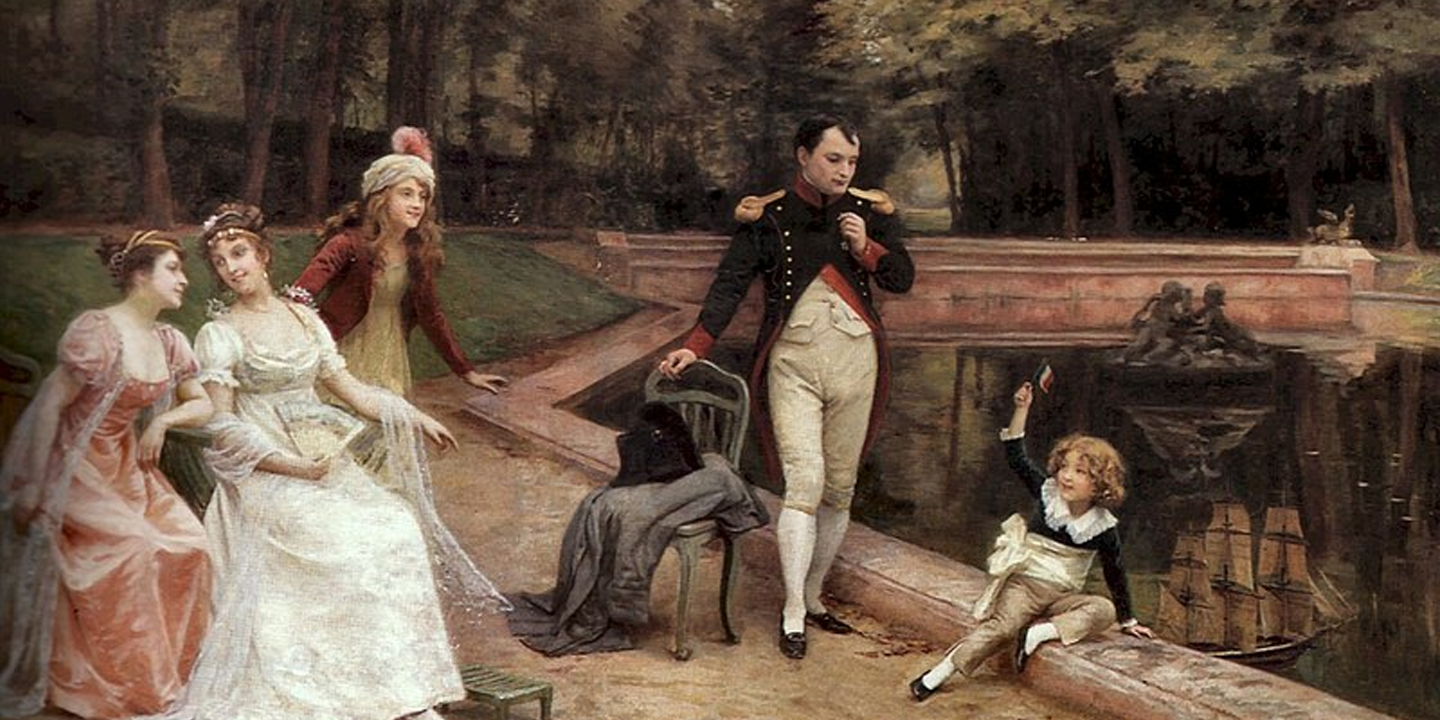
The 20 Most Recognized Historical Figures Of All Time
The Biggest Names In History. Although the Earth has been…
By Cathy Liu Oct 4, 2024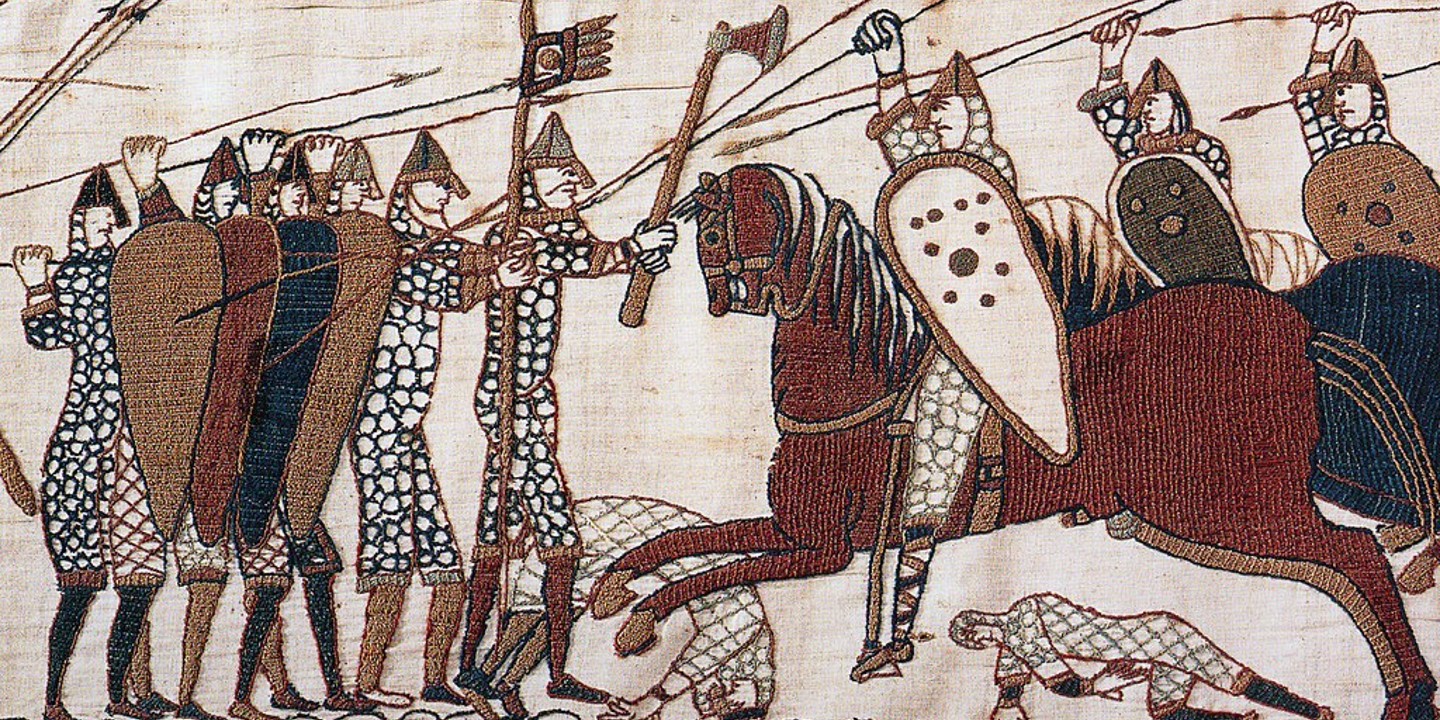
10 of the Shortest Wars in History & 10 of…
Wars: Longest and Shortest. Throughout history, wars have varied dramatically…
By Emilie Richardson-Dupuis Oct 7, 2024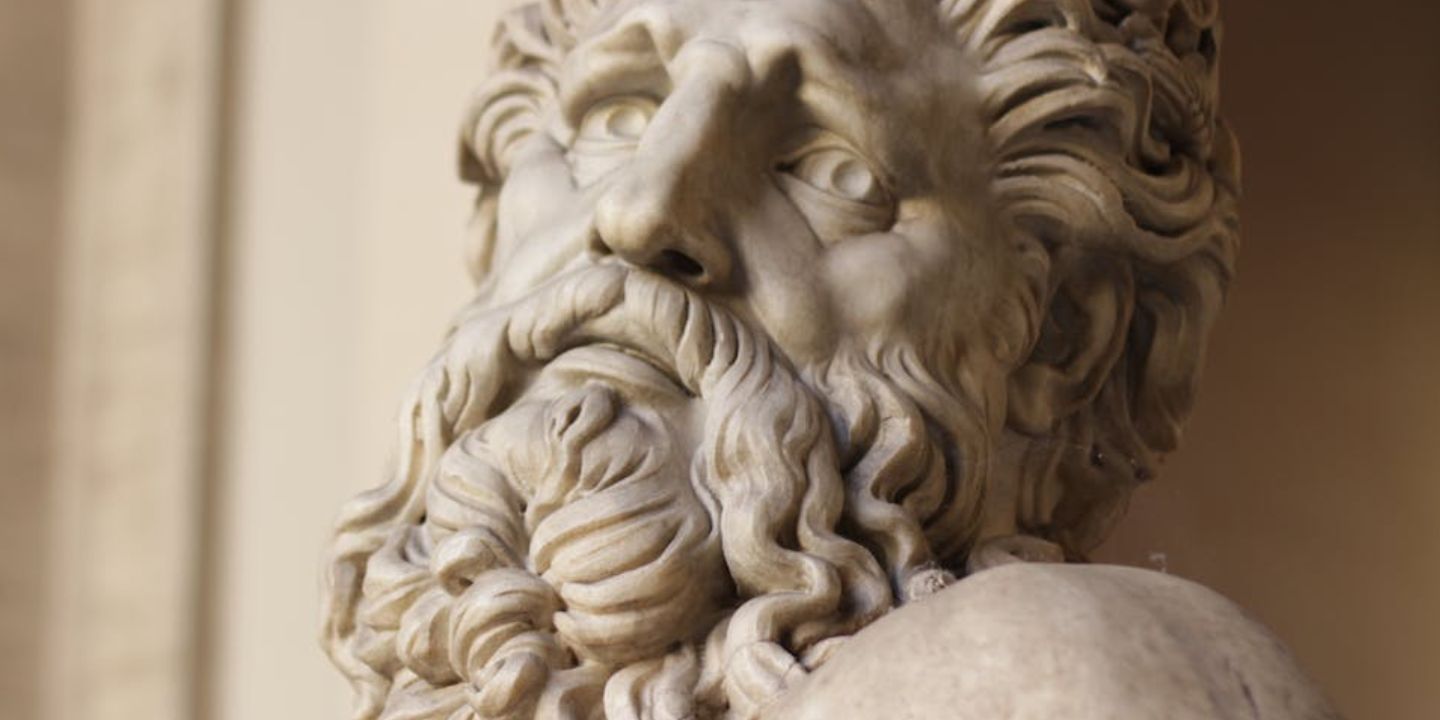
10 Fascinating Facts About Ancient Greece You Can Appreciate &…
Once Upon A Time Lived Some Ancient Weirdos.... Greece is…
By Megan Wickens Oct 7, 2024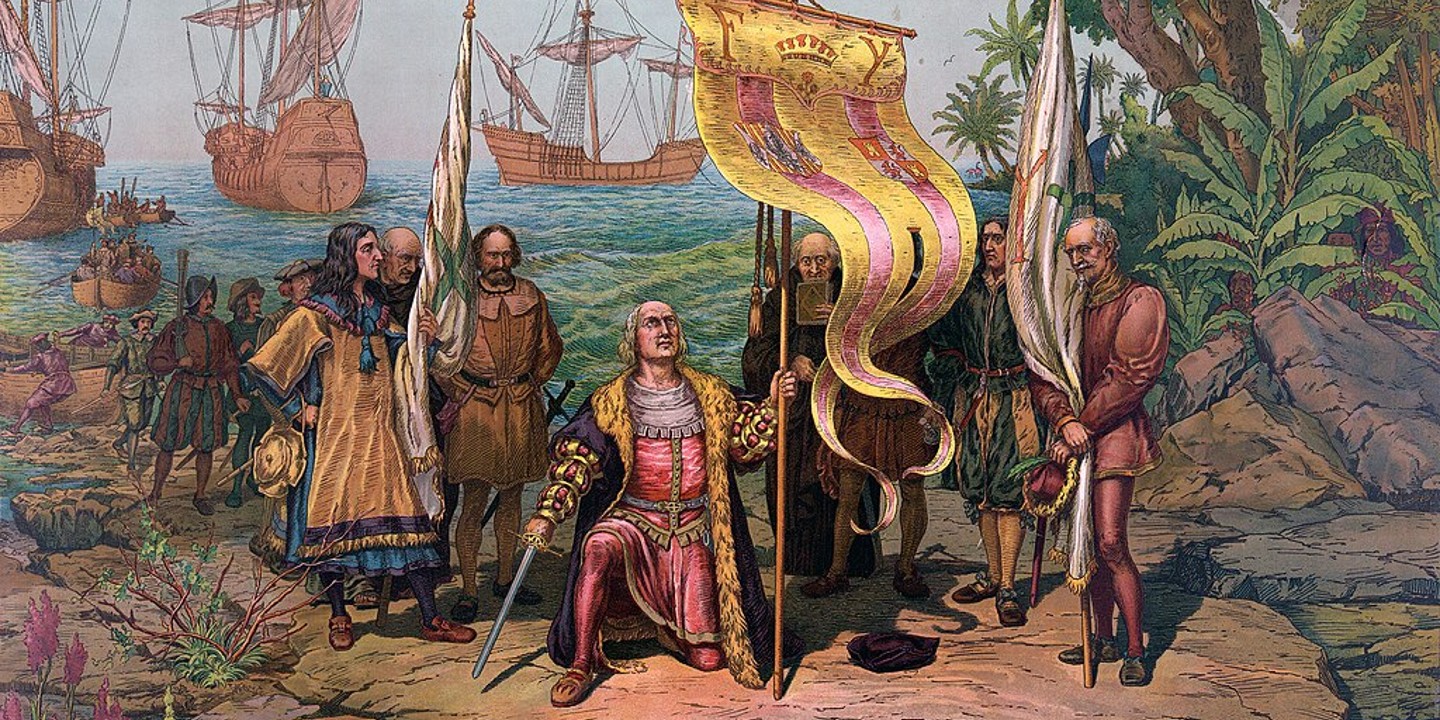
20 Lesser-Known Facts About Christopher Columbus You Don't Learn In…
In 1492, He Sailed The Ocean Blue. Christopher Columbus is…
By Emilie Richardson-Dupuis Oct 9, 2024
20 Historical Landmarks That Have The Craziest Conspiracy Theories
Unsolved Mysteries Of Ancient Places . When there's not enough evidence…
By Megan Wickens Oct 9, 2024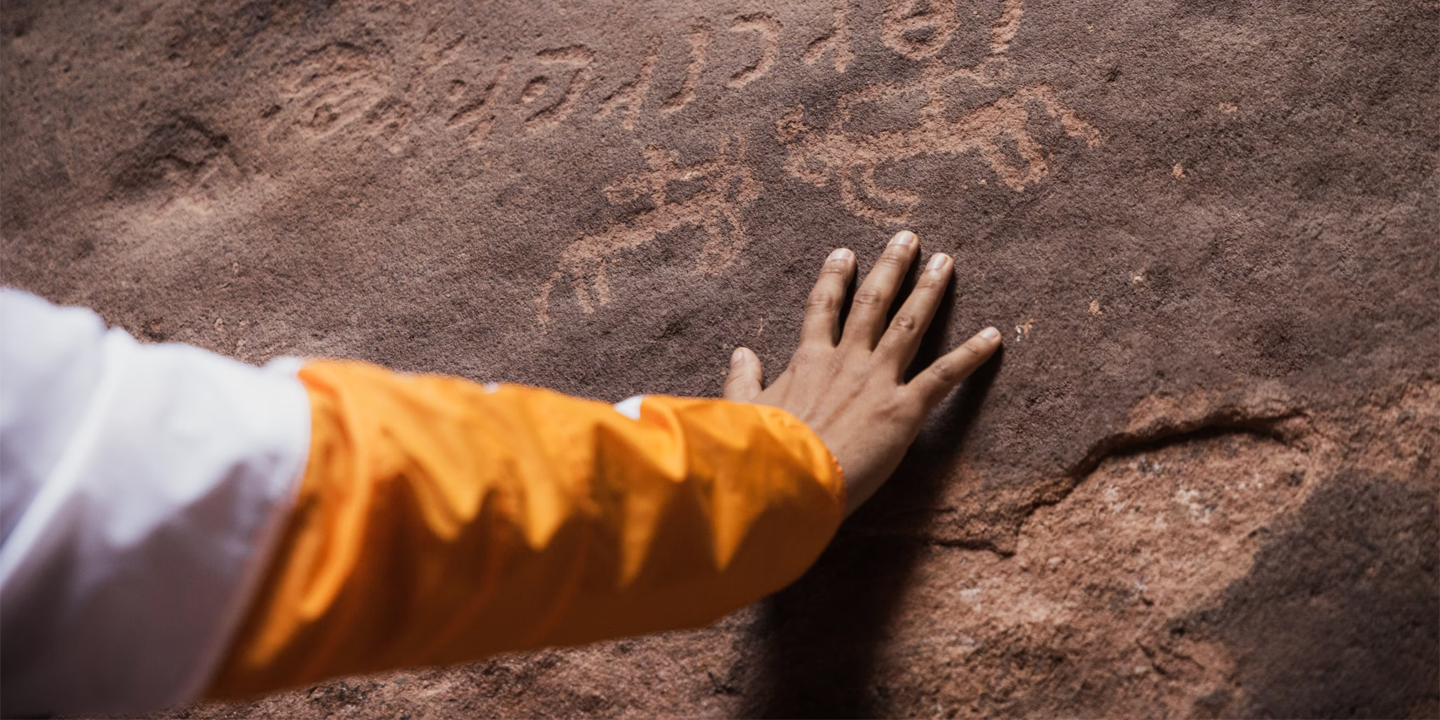
The 20 Craziest Inventions & Discoveries Made During Ancient Times
Crazy Ancient Inventions . While we're busy making big advancements in…
By Cathy Liu Oct 9, 2024

